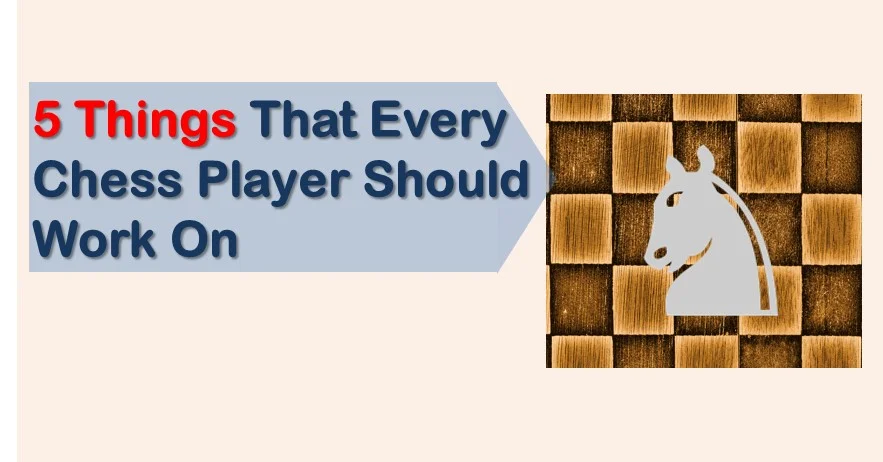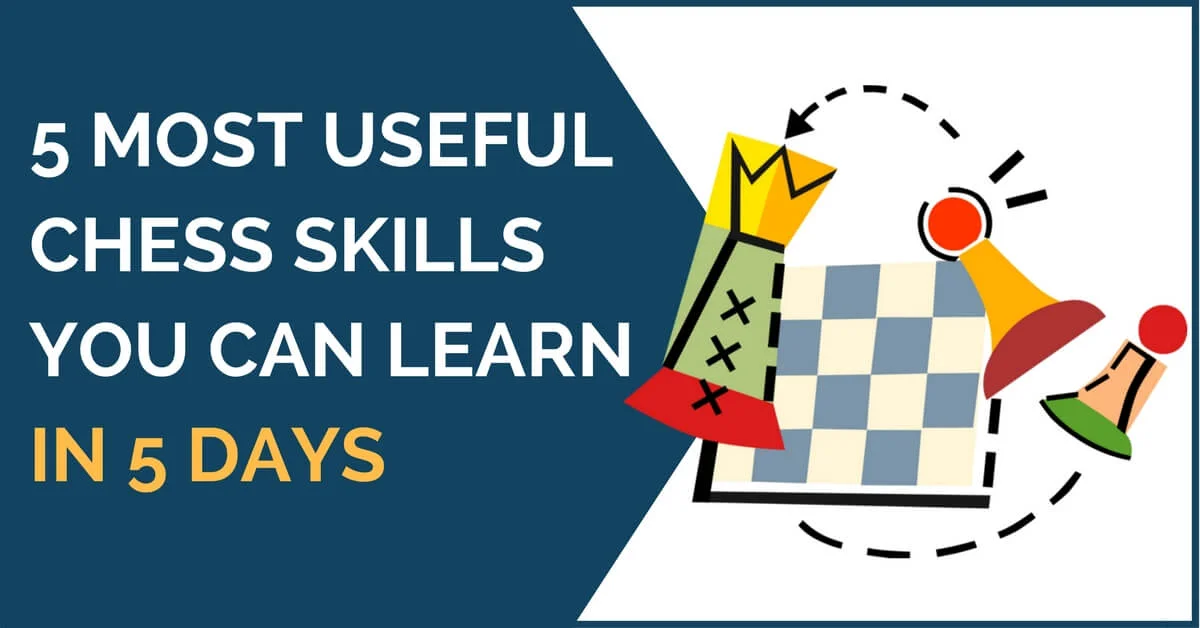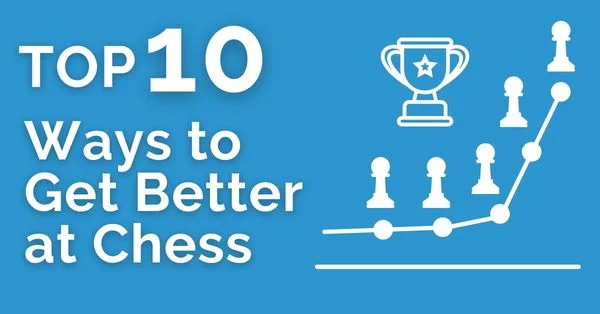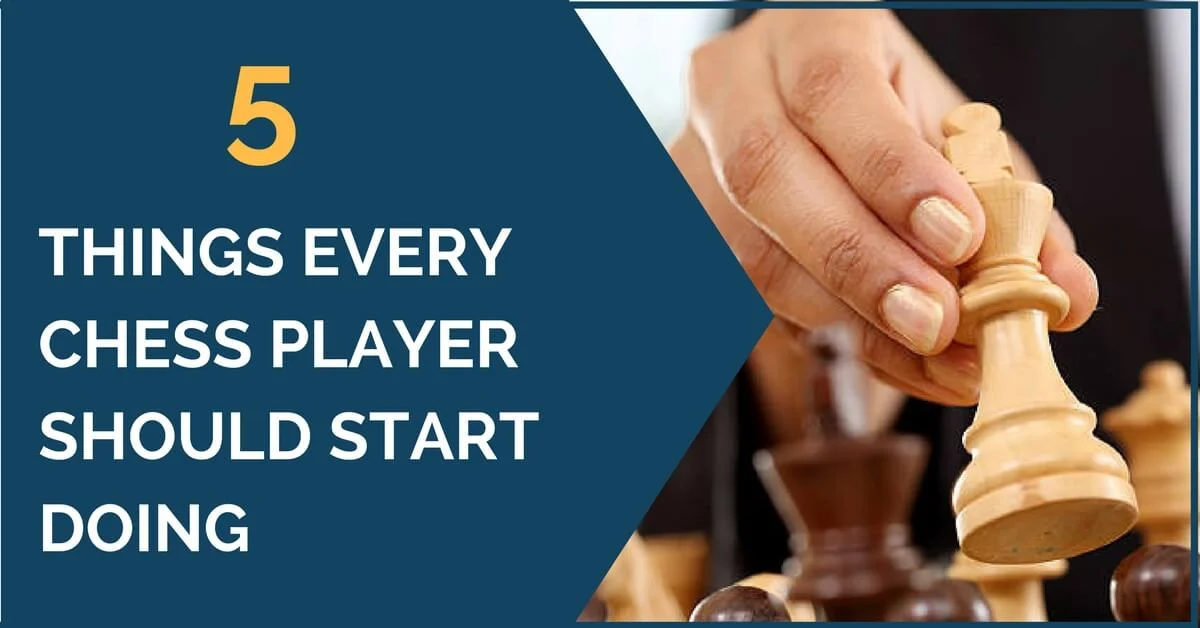5 Things That Every Chess Player Should Work On

This article is primary dedicated for under 2200 chess players that want to improve their game (sorry those of you higher rated). Many players struggle and don’t know where to start and how to improve. Today we will give you some specific pointers and outline the most important topics to work on. Ready to proceed?
1. Calculation Skills
Calculation skill is a very important skill and something that most chess players need to improve on. However, being a technical skill, calculation ability is very difficult to work on.
First of all, there is no exact plan of how that should be done. Secondly, in order to improve the calculation ability chess players need to push themselves to go outside of their comfort zone. If they already can see 3 moves ahead they need to train themselves to see deeper into the position. A lot of patience and practice is necessary for mastering this crucial skill.
One of the methods that works for improving one’s calculation ability, is solving tactical positions without moving the pieces on the board. That’s an integral part of each day’s homework assignment in our sophisticated 21 Days Chess Training Course. At first, it will be difficult to find the correct continuation because your calculation depth is very limited. But as the time progresses, you will learn to calculate deeper and that skill will get translated from solving homework to the actual games. And then, the results will come.
2. Tactical Vision
Tactical vision is related to the calculation ability. It is somewhat simpler skill to master. The reason being is that the calculation ability requires much higher level of visualization, while tactical vision needs something called pattern recognition.
A player can recognize standard tactical motifs by simply glancing at the board and catching clues associated with these tactics. That skill can be trained by exposing yourself to the different tactical themes and finding tactics in different positions.
3. Positional Understanding
Positional understanding is the most fundamental chess skill. It determines how well a chess player understands what’s going on in certain position. Quality of this understanding is something that sets the player’s level and directly translates into other things such as coming up with winning game plan, etc.
How do you work on the positional understanding?
The most common way to improve your positional understanding is by studying Grandmaster’s games or parts of the games with detailed explanation of certain positional elements of chess. These elements are like stepping stones. If you don’t know how to deal with typical middle game positions, you won’t be able to become a strong chess player.
We did our best to help you at working on your positional chess, because we understand the importance of it. In our positional package, you will master 14 most critical elements of positional chess.This course will give you a great head start.
The second step to mastering positional chess is working through the video course Grandmaster Level Positional Understanding which covers more advanced techniques.
4. Endgame Understanding
Endgame understanding is something that many chess players neglect. They pay a big price for that negligence by struggling and not being able to convert easily winning endings.
Most players who are serious about their game, have a pretty good idea about playing simple king and pawn endgames [these and more are covered in the Endgame Package of 21 Days Chess Course]. King and pawn endgames are much simpler and less common than the rook endings. The rook endgames is where many elo points are lost on the amateur level. They are counter-intuitive, complicated, hard to understand and to play correctly.
By simply mastering 10-20 typical rook endings, you can move from a class C player to a class B player or even from a class B player to a class A player.
In our intensive Rook Endgames video course, you will master 36 (!) most important rook endgame positions, and will get a home field advantage every time you encounter one of those.
5. Attacking Chess
It’s no secret that most amateur players love to play attacking chess. The problem is that 95% of the amateur players simply don’t know how to attack. They sacrifice pieces, plan something ambiguous, start an “attack”, but oftentimes that does more bad than good.
They launch an attack at the wrong time, with the wrong pieces and on the wrong side of the board. They don’t spend enough time preparing the attack, ignore taking basic precautions and bypass important prophylactic moves.
The result?
Well, you can already guess: losing more elo points.
That does not have to be that way though. By working on attacking chess, by learning from the great attacking masters of the past and present, by absorbing important ideas and skills you will be able to apply this knowledge in your games, which will make all the difference in your chess.
From a “wanna-be attacking player” you will actually become one.
There are many books and videos dedicated to attacking chess. Some are overly overwhelmed with variations, some are too idealistic and distant from real life chess.
That’s why we created our own Attacking Chess Training video course that will help you to bring you attacking skills on the next level. Ready to start planning and executing game winning attacks?










Comments: